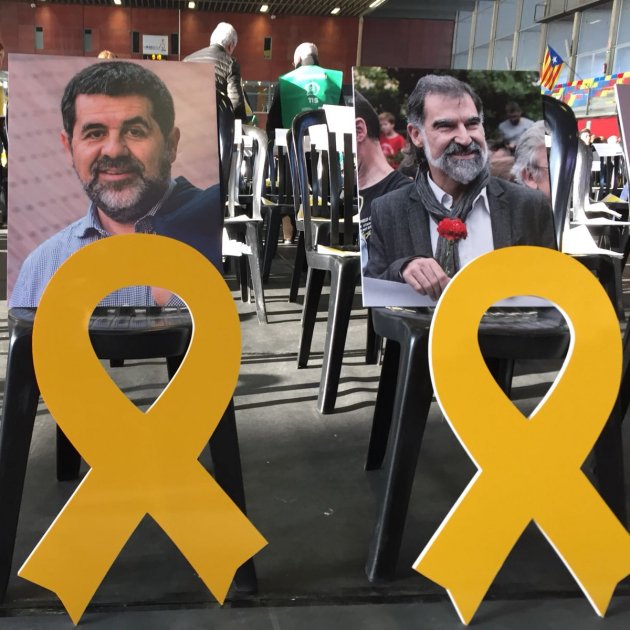Human rights organization Amnesty International denounced on Friday that the toughening up of the prison regime for jailed Catalan independence activists Jordi Sànchez and Jordi Cuixart "perpetuates a situation of injustice against both, and they must both be released immediately."
The director of the organization in Spain, Esteban Beltrán, stated that "the Jordis should never have entered prison", and that their conviction for sedition by the Supreme Court in October 2019 "constitutes an undue restriction on their rights to freedom of peaceful assembly and expression, contrary to human rights."
The organization recalls that it has asked for their release ever since they were remanded in custody in October 2017.
An Amnesty press statement says that Jordi Sánchez and Jordi Cuixart "have been unjustly imprisoned for more than three years, away from their families and their professional obligations".
The human rights organizations concludes by recalling that it has called on the Spanish Congress "to move forward without further delay in reforming the Penal Code to ensure that the definition of the offence of sedition does not unduly criminalize the exercise of freedom of expression and peaceful assembly or impose disproportionate penalties on acts of peaceful civil disobedience".
Loss of prison leave for all 9 Catalan prisoners
The Supreme Court has overturned the Level 3 prison regime which had been granted to the nine pro-independence politicians jailed for the 2017 Catalan independence referendum, considering it "premature." The decision in particular affects the former president of the Catalan Parliament Carme Forcadell and the ex-minister Dolors Bassa, who had been allowed to maintain their regime which allowed them extended hours of leave from the prison pending the Supreme Court's final decision. The seven (male) prisoners of Lledoners had already had all their leave suspended as an interim ruling, and now the Level 3 regime is definitively annulled.
The judges also denied the prisoners work leave under article 100.2 of the prison regulations, arguing that it dd not apply as it was not “connected to a reinsertion process”.
